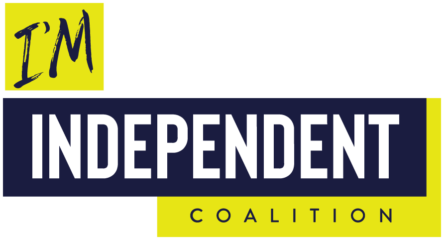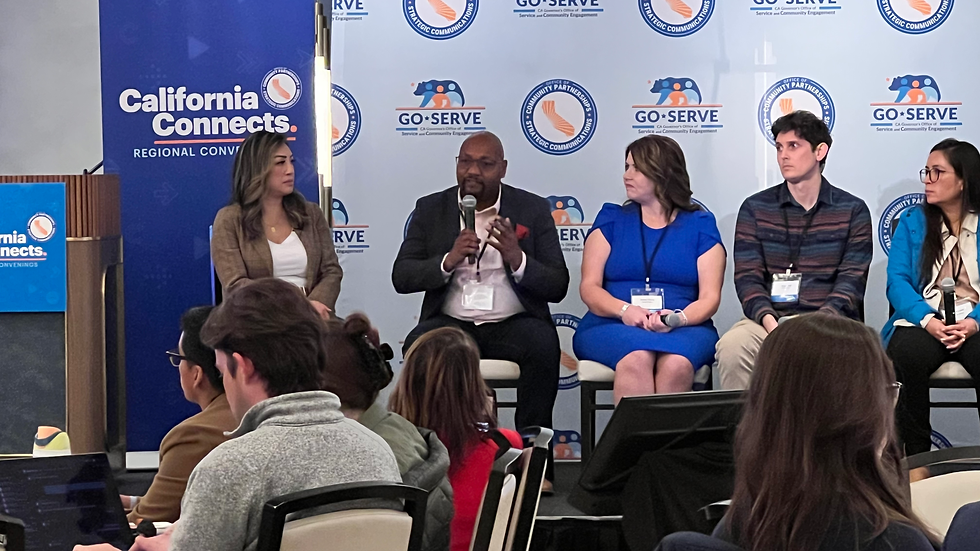Could California’s AB5 knock Black rideshare entrepreneurs into the soup line?
- INFO-MD Staff

- Jul 25, 2019
- 6 min read
Updated: May 26, 2022
FRESNO, CA—At the I’m Independent Coalition press conference held Wednesday at the Fresno Chamber of Commerce, four independent workers from the on-demand marketplace expressed their thoughts and feelings against California’s Assembly Bill 5 passed in May by the Assembly, authored by Assemblywoman Lorena Gonzalez (D-San Diego) which would codify the California Supreme Court’s Dynamex decision, with the intent of protecting workers from being misclassified as independent contractors. AB5 goes to the state senate for a vote in August.
The AB 5 would extend labor protections, unemployment insurance, health care subsidies, paid parental leave, overtime pay, workers’ compensation, and a guaranteed $12 minimum hourly wage to many workers formerly labeled as independent contractors; if it passed in the senate, these workers officially become employees.
This means companies would be responsible for covering social security, Medicare taxes, unemployment insurance as well as workers compensation for employees.
Prior to being elected to the Assembly, Gonzalez was a labor leader and organizer, serving as the CEO and Secretary-Treasurer for the San Diego and Imperial Counties Labor Council, AFL-CIO and has a 99-100% ratings with the California Labor Federation and United Domestic Workers of America. Gonzalez, a former Stanford cheerleader, also championed AB202 passed in 2016 requiring sports teams to employ cheerleaders as workers instead of contractors; she introduced the bill after Oakland Raiderette cheerleaders filed a wage-theft lawsuit against the NFL.
“Big businesses shouldn't be able to pass their costs onto taxpayers while depriving workers of the labor law protections they are rightfully entitled to. This legislation is an important work-in-progress to provide certainty to California’s businesses, provide protections for California’s workers and guard the taxpayers from subsidizing unscrupulous corporations.”
California’s Assembly Bill 5 attacks the federal laws vague premise of what an independent workers is versus an employee; last year the California Supreme Court passed ABC regulation based on case Dynamex Operations West v. Superior Court. that claims three criteria to determine if a worker is classified as an independent contractor or employee: The ruling and the bill instruct businesses to use the “ABC test” to figure out whether a worker is an employee. To hire an independent contractor, businesses must prove that the worker (a) is free from the company’s control, (b) is doing work that isn’t central to the company’s business, and (c) has an independent business in that industry. If they don’t meet all three of those conditions, then they have to be classified as employees. New Jersey, Vermont, and Massachusetts use the standard to enforce their state labor laws.
Spark from the 10-year lawsuit against a gig-economy corporation
However last year’s ruling came about because of the document delivery company, Dynamex Operations West, requiring its independent contractors to wear their company uniforms and display its logo, although the independent drivers were bearing the responsibility of their own vehicles and costs associated with the delivery business. This lawsuit meandered in the courts for 10 years.
On the contrary, a different case concerning delivery service GrubHub against plaintiff and former GrubHub delivery driver, Raef Lawson, ruled in favor of the corporation. Although Lawson felt that he had to work under the company’s control, GrubHub considers itself “the premiere marketplace connecting diners with restaurants.” U.S. Magistrate Judge Jacqueline Scott Corley in San Francisco ruled that GrubHub’s lack of all necessary control over Mr. Lawson’s work, including how he performed deliveries and even whether or for how long, along with other factors persuade the Court that the contractor classification was appropriate for Mr. Lawson during his brief tenure with GrubHub.
Although some drivers fighting Uber in court for the last six years claim that the company requires strict vehicle conditions, what rides they can take, and which routes to use, Uber’s counter argument contends that drivers are not employees because they set their own schedules and provide their own cars.
Unfortunately, AB5 will not just affect app-based workers, exotic dancers, manicurists, truck drivers, ride-share drivers, and delivery drivers, (i.e. Amazon, Uber, Instacart, Postmates, etc.); the bill will address a wide variety of industries independent contractors under this premise who would become employees.
Different sectors of the workforce are stepping up to voice their concerns on AB5 which Gonzalez says is “a work in progress.” The California News Publishers Association is seeking exemption to cover freelance journalists and newspaper carriers; micro-Black publishers could shut down if not exempt from being able to use independent journalists, photographers and videographers.
She is willing to consider excluding some occupations such as consultants, travel agents, doctors, architects, engineers, dentists, lawyers, insurance agents, accountants, financial advisers, real estate agents, stock brokers, investment advisers, and some salespersons, hairstylists who rent booths at salons, short-term projects and business-to-business contracts.
The threat of AB5 to Black entrepreneurs
In fact, at Wednesday’s I’m Independent Coalition press conference, rideshare entrepreneurs spoke up about how they prefer to make their own schedules, and work when they want, on their available time. From college student, substitute teacher to hip-hop artist, all three voices expanded on the convenience of the on-demand app corporations.
Black rideshare entrepreneur James Hosey said he thrives off this opportunity, as he provides for his young family and budding musical career.
Moreover, Black entrepreneurs in the rideshare industry are able to seize a lucrative opportunity, here is why:
UCLA’s Institute for Transportation Studies published a dissertation last year that found Black people living in low-income communities were the most frequent users of Lyft in Los Angeles County. However, drivers for ride-hailing companies Lyft and Uber were also more likely to discriminate against those very same customers, City Lab reported.
Before that in 2016, a study of 1,500 cases in Seattle and Boston found that Uber and Lyft drivers discriminated against passengers with Black-sounding names by deciding not to pick them up.

News One reported that Black customers also had longer wait times and more cancellations with Lyft and Uber—though shorter than traditional taxi services. Lyft drivers cancelled on Black riders 7 percent of the trips, compared to 3 percent for whites. Uber drivers cancelled on 6 percent of Blacks, but only 2 percent of whites. Black customers also had higher average wait times, nearly 2 minutes more than white passengers.
It is this disparity that allows entrepreneurs like James Hosey to flourish in this industry.
Furthermore, Black business-owners with similar on-demand apps who had to struggle to find funding or had to work their successful gig-model business from the ground up could suffer incredible losses.
For example, Godwin Gabriel, is the CEO and founder of ridesharing app, Moovn. The Tanzania native launched his on-demand transportation app in Seattle in 2015. He was a labeled an outsider in the tech industry when it came to trying to find seed funding for his app which is now quite successful--his business model could stand to lose in California and other states who may follow suit to the law if passed.
The on-demand economy is not going anywhere. According to several surveys, not only are customers loving the on-demand type of services they can enjoy, this is also becoming a sweet-spot for on-demand entrepreneurs; the industry grew by 58% in 2017. Take a look at the startling stats below of this $57 billion industry:
According to Burson-Marsteller’s on demand economy survey:
86.5 Million Americans (42% of adult population) have used an on-demand service.
45 Million Americans (22% of adult population) have offered services in on-demand service.
51% of those who offered services in on-demand economy admitted that their financial situation has improved in past year.
64% of those who offered on-demand services hope that their financial situation will improve in coming year.
51% of people offering services for startups in the on-demand economy are under 35 years of age.
41% of people who have used or provided an on-demand service live in urban areas.
According to Intuit’s on demand economy survey:
70% of on-demand workers are satisfied with their work.
81% of workers in on-demand economy plan to continue working with the same provider over the next year.
63% of on-demand workers say that they are happier to be working in the on-demand economy.
63% workers say that they are working with on-demand startups to earn supplemental income.
46% people working in this economy say they are working because of their flexible schedule.
33% people work for more than one platform.
11% workers said that they work in on-demand economy as they could not find any other job.

















Comments